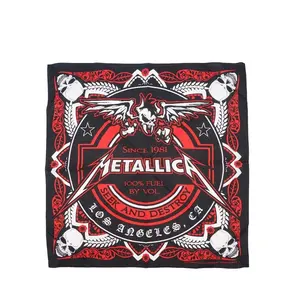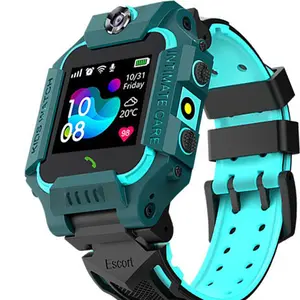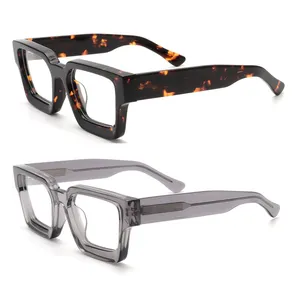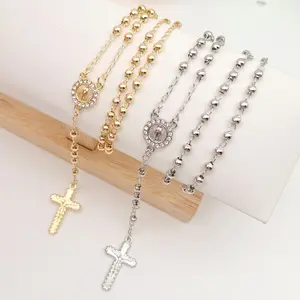Popular na sua indústria






Folha de liga de titânio ASTM 1mm 2mm 3mm 4mm 5mm 6mm 7mm 8mm grau 6 TI5AL2.5Sn BT5-1
€ 24,85 - € 27,82
Pedido Mínimo: 1 Quilograma
Envio por peça: € 4,64




Titânio níquel liga Nitinol folhas/níquel Titânio forma liga folha/nitinol liga Plat
€ 14,80 - € 16,10
Pedido Mínimo: 3 Peças







Preço da placa de titânio da alta qualidade, folha de titânio da classe 1/2 eb6549
€ 21,33 - € 55,64
Pedido Mínimo: 10 Quilogramas







Bobina de folha de titânio 0.01mm 0.3mm, placa de titânio em bobina para uso médico, alta qualidade, 99.9% de pureza, astm b265, grau 5
€ 12,99 - € 25,97
Pedido Mínimo: 100 Quilogramas
Envio por peça: € 417,30







Placa de níquel puro 0.2mm para bateria, alta qualidade 99.9% 0.1mm folha de níquel 0.15mm
€ 26,89 - € 31,53
Pedido Mínimo: 5 Quilogramas
Envio por peça: € 153,30







Folha fina de titânio para uso industrial e de alta qualidade 99.9% de titânio puro
€ 48,22 - € 51,00
Pedido Mínimo: 1 Quilograma
Envio por peça: € 27,89






Alta qualidade 99,9% titânio puro e titânio liga grau 1/2/5 titânio placa fina folha para Industrial
€ 15,76 - € 18,55
Pedido Mínimo: 100 Quilogramas






Folha fina de titânio para uso industrial de alta qualidade 99,9% puro e liga de titânio grau 1/2/5
€ 27,82 - € 38,95
Pedido Mínimo: 1 Quilograma






Alta qualidade 99,99% puro titânio folha ti gr1 titânio fina folha 0.5mm
€ 13,91 - € 25,97
Pedido Mínimo: 50 Quilogramas
Envio por peça: € 1,75






China Baoji Hanz fornecimento direto da fábrica gr1 gr2 folha de titânio fino
€ 18,55 - € 27,82
Pedido Mínimo: 1 Quilograma
Envio por peça: € 25,25






Alta qualidade 99,9% titânio puro e titânio liga grau 1/2/5 titânio folha fina para industrial
€ 3,76 - € 11,27
Pedido Mínimo: 10 Quilogramas
Buscas Relacionadas:
folha titanium ta2folha titânio 1.2mmta2 titânio folha preçofolha titânio puro preçofolha titânio puro 3mmfolha titânio purofolha titanium grau 2folha titânio grossa 2mmfolha titânio 0.1mmfolha titânio 0.8mmfolha titanium grau 4titânio folha preço por kgfolha titanium na construçãofolha titânio 0.5mmindia titânio folha preço






Alta Qualidade 99.9% puro titânio e liga de titânio grau 1 2 5 chapa de titânio fina para o uso industrial
€ 13,91 - € 18,55
Pedido Mínimo: 100 Quilogramas
Envio por peça: € 7,90






Alta Qualidade 99.9% puro titânio e liga de titânio grau 1/2/5 chapa de titânio fina para o uso industrial
€ 15,03 - € 18,36
Pedido Mínimo: 5 Quilogramas
Envio por peça: € 274,99



Titânio puro e titânio liga grau 1/2/5 titânio folha fina para Industrial
€ 27,82
Pedido Mínimo: 10 Quilogramas
Envio por peça: € 92,64






Indústria médica grau 1 a 7 gr2 preço competitivo para chapa de metal laminada a frio 10mm de titânio fino
€ 13,91 - € 25,97
Pedido Mínimo: 1 Quilograma






Folha fina de titânio para uso industrial, alta qualidade 99,9% puro e titânio grau 1/2
€ 26,89 - € 28,75
Pedido Mínimo: 1 Quilograma
Envio por peça: € 1.444,55






Folha fina de titânio puro e titânio da liga 1/2/5 para industrial
€ 18,55 - € 23,18
Pedido Mínimo: 200 Quilogramas






Titânio puro e titânio liga placa Grau 1/2/5 Titânio folha fina para Industrial
€ 11,13 - € 13,91
Pedido Mínimo: 100 Quilogramas






Alta qualidade 99,9% titânio puro e titânio liga grau 1/2/5 titânio folha fina para industrial
€ 20,40 - € 21,56
Pedido Mínimo: 100 Quilogramas






Folha de titânio fino para uso industrial, alta qualidade, 99,9% pura, 4x8, preço, chapa de titânio grau 1/2/5
€ 14,93 - € 18,55
Pedido Mínimo: 100 Quilogramas






Folha fina Titanium pura da categoria 5 Titanium para placas titanium industriais da alta qualidade
€ 21,33 - € 23,18
Pedido Mínimo: 500 Quilogramas






Titânio puro e titânio liga grau 1/2/5 titânio folha fina para Industrial
€ 23,18 - € 27,82
Pedido Mínimo: 1 Quilograma






Titânio puro e titânio liga grau 1/2/5 titânio folha fina para Industrial
€ 1.288,79 - € 1.446,41
Pedido Mínimo: 1 Tonelada






Alta Qualidade de Titânio gr 2 Grau 5 custo Placa 0.5 milímetros 1mm 2mm gr5 placa de titânio ti6al4v folhas
€ 16,69 - € 18,55
Pedido Mínimo: 1 Quilograma






Estoques gr2 gr5 polido fino kg folha de titânio 3mm preço gr1 para fornecedor da fábrica baoji tianbo metal
€ 38,95 - € 45,44
Pedido Mínimo: 5 Quilogramas






ASTM B265 GR5 titânio liga placa titânio folhas para médicos, industriais
€ 18,46 - € 42,56
Pedido Mínimo: 1 Peça






Folha de folha de placa fina de titânio Ti Ta1 0,1 mm x 100 mm x 1000 mm
€ 15,30 - € 15,77
Pedido Mínimo: 500 Quilogramas
Envio por peça: € 0,1206






China ASTM B265 Grade1 Folha de titânio para trocadores de calor Indústria de Preços
€ 15,58 - € 16,51
Pedido Mínimo: 10 Quilogramas
Envio por peça: € 115,63






Fornecedores de chapa de titânio laminada a frio tc4 grade5 5mm 10mm de parede fina em venda quente
€ 10,20 - € 18,55
Pedido Mínimo: 1 Quilograma
Envio por peça: € 75,82






Folha de titânio grau 5 | Ti 6al-4v Gr 5 Placa Ti6al4v Folha de liga de titânio grau 5
€ 13,91 - € 23,18
Pedido Mínimo: 5 Quilogramas






Folha De Liga De Titânio Gr5, placa fina De Metal TC4, resistência à corrosão
€ 16,69 - € 20,40
Pedido Mínimo: 500 Quilogramas
Envio por peça: € 1,67






Placa Titanium Grau 2 Folha Titanium Metal Ti TA2 / GR2 Placa Fina Superfície Lisa
€ 13,73 - € 17,25
Pedido Mínimo: 1 Quilograma






Direto da fábrica Top Ranking grade-5 eli 0.2mm folha fina médica titânio 0.03mm grau 2 0.05mm folha de titânio
€ 13,91 - € 27,82
Pedido Mínimo: 10 Quilogramas






Bobina titanium fina titanium médica industrial da placa e Titanium liga TA1 ta2 gr1 gr2 Titanium
€ 16,69 - € 18,55
Pedido Mínimo: 2 Quilogramas






Folha fina de titânio puro e liga de titânio grau 1/2/5 para uso industrial
€ 20,40 - € 24,11
Pedido Mínimo: 100 Quilogramas
Envio por peça: € 7,90






Metal 0.2mm ânodo grau 2 corte preço competitivo para 10mm laminados a frio folha de titânio fina com alta qualidade
€ 13,91 - € 18,55
Pedido Mínimo: 5 Quilogramas
Envio por peça: € 8,72






Folha fina de titânio gr1, folha de liga de titânio pura
€ 15,76 - € 18,55
Pedido Mínimo: 100 Quilogramas






O titânio puro e a liga Titanium classificam 1/2/3/4 Folha fina Titanium para industrial
€ 16,69 - € 18,55
Pedido Mínimo: 500 Quilogramas






Vendas diretas da fábrica Grade1 GR2 GR3 GR5 GR7 placas de titânio 1mm 2.5mm 3mm folha escovada
€ 19,48 - € 25,04
Pedido Mínimo: 10 Quilogramas
Envio por peça: € 19,98
Principais categorias
Sobre folha fina pura titânio
Alibaba.com oferece uma seleção de dar água na boca de deliciosos e acessíveis. folha fina pura titânio disponível em uma infinidade de sabores. Seja para assar ou espalhar, os clientes encontrarão a. folha fina pura titânio para seus gostos. Estes também são presentes perfeitos para um amigo ou ente querido e são embalados com designs atraentes.
Apenas as melhores frutas e ingredientes são usados em cada frasco. Deliciosas frutas perfeitamente maduras, como cerejas, mangas, morangos e peras são colocadas em cada porção. Os vendedores no Alibaba.com buscam apenas as melhores frutas e ingredientes em cada frasco de. folha fina pura titânio e também existem opções sem açúcar disponíveis. Os preços são mantidos baixos para garantir que os clientes possam alimentar suas famílias e amigos de presente com produtos deliciosos que não vão quebrar o banco.
folha fina pura titânio é uma delícia quando espalhada no pão e croissants , ou bagels e fazer um deleite saboroso para quem gosta de doces. Eles também são uma ótima adição para assar, especialmente em scones ou incorporados em uma esponja. Esses deliciosos produtos são uma ótima forma de conservar frutas e geralmente são cozidos em água e açúcar ou substitutos do açúcar. O. A folha fina pura titânio é então reduzida a um ponto de definição, como um produto final macio ou gelatinoso. As variedades incluem conservas sem sementes e salgadas, que são ótimas para comer com queijo e biscoitos.
Os vendedores de. folha fina pura titânio em Alibaba.com pode ajudar com dúvidas sobre produtos e também fornecer orçamentos para pedidos individuais ou em massa. Eles trabalham duro para garantir que os produtos mais saborosos sejam oferecidos a preços competitivos de forma consistente.
Apenas as melhores frutas e ingredientes são usados em cada frasco. Deliciosas frutas perfeitamente maduras, como cerejas, mangas, morangos e peras são colocadas em cada porção. Os vendedores no Alibaba.com buscam apenas as melhores frutas e ingredientes em cada frasco de. folha fina pura titânio e também existem opções sem açúcar disponíveis. Os preços são mantidos baixos para garantir que os clientes possam alimentar suas famílias e amigos de presente com produtos deliciosos que não vão quebrar o banco.
folha fina pura titânio é uma delícia quando espalhada no pão e croissants , ou bagels e fazer um deleite saboroso para quem gosta de doces. Eles também são uma ótima adição para assar, especialmente em scones ou incorporados em uma esponja. Esses deliciosos produtos são uma ótima forma de conservar frutas e geralmente são cozidos em água e açúcar ou substitutos do açúcar. O. A folha fina pura titânio é então reduzida a um ponto de definição, como um produto final macio ou gelatinoso. As variedades incluem conservas sem sementes e salgadas, que são ótimas para comer com queijo e biscoitos.
Os vendedores de. folha fina pura titânio em Alibaba.com pode ajudar com dúvidas sobre produtos e também fornecer orçamentos para pedidos individuais ou em massa. Eles trabalham duro para garantir que os produtos mais saborosos sejam oferecidos a preços competitivos de forma consistente.























